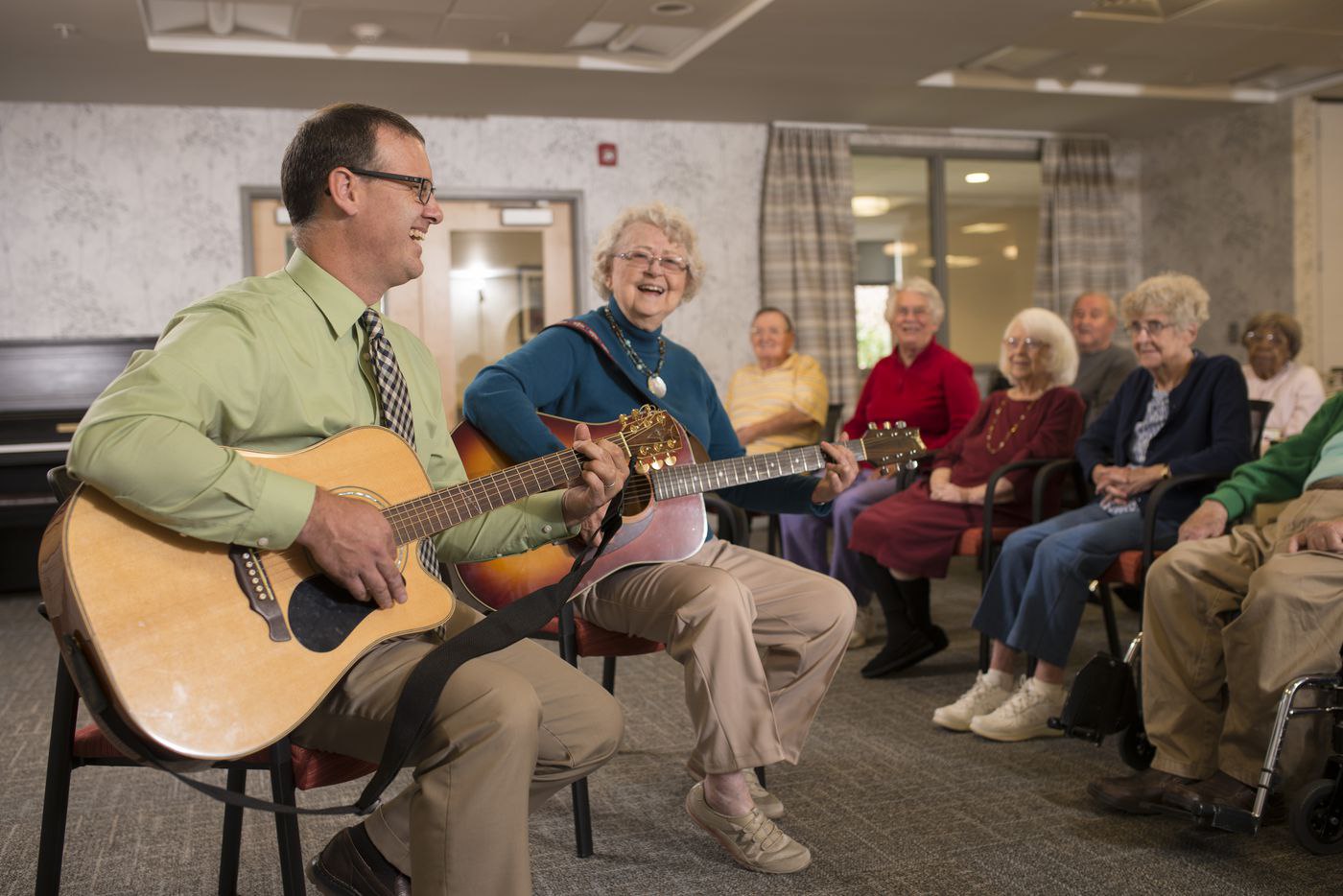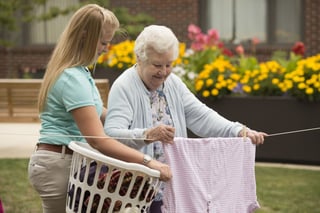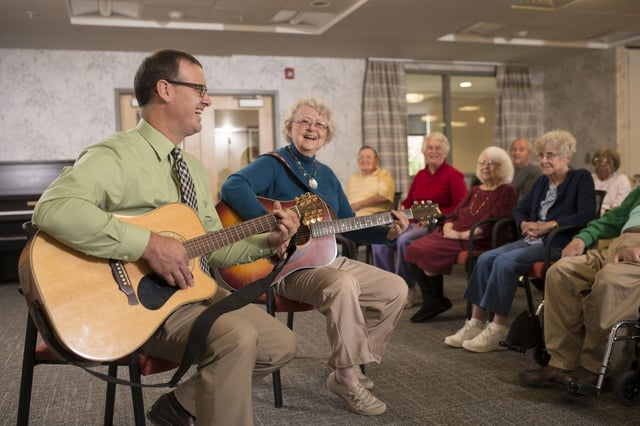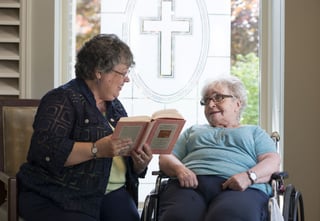
The Health Benefits of Random Acts of Kindness & Volunteerism
Updated from the original publication on February 29, 2016.
 What are “random acts of kindness?” They’re spontaneous, free-willed gestures that benefit another person with nothing asked in return. The purpose is to make the recipient feel good, but the process typically also results in a feeling of fulfillment for the giver.
What are “random acts of kindness?” They’re spontaneous, free-willed gestures that benefit another person with nothing asked in return. The purpose is to make the recipient feel good, but the process typically also results in a feeling of fulfillment for the giver.

As this year’s Random Acts of Kindness Week comes to a close, we take time to consider the many ways in which Presbyterian Senior Living residents benefit from both giving and receiving kindnesses through volunteerism. By volunteering, seniors have the opportunity to share their experience and knowledge while remaining engaged in the local community.
We’ve long known that volunteering can make people feel included and involved. But recent research also points to tangible health benefits for seniors who give of their time and talents.
Health Benefits for Senior Volunteers
In a guest column for McKnight’s, Presbyterian Senior Living Chief Executive Officer Stephen Proctor writes that volunteering is so beneficial for seniors, it might even be the elusive “fountain of youth.” Recent studies have found that participating in volunteer activities can lessen depressive symptoms and improve both cognitive and physical function.

A study of participants in AARP’s Experience Corps found that volunteers showed improvements in both physical and mental health along with an apparent delay in the onset of problems related to aging. Specifically, the study found that volunteers experienced:
- Fewer limitations in their physical abilities.
- A slower decline in health because of aging.
- A reduced risk of depression.
- Increased physical activity.
- Greater engagement in the local community.
- A larger number of friends.
- A feeling of optimism about life.
- Better memory capacity.
Another study looked at several types of productive activities — volunteering, working and providing care — and found that volunteering had the strongest relationship to reduced levels of inflammation. The results were most prominent in the group of study participants over the age of 70.
 Volunteers demonstrate better self-esteem and are more connected with others, research has found. At Presbyterian Senior Living, CEO Proctor writes, volunteering provides social, intellectual, physical and spiritual challenges that allow residents to lead healthier and more fulfilling lives.
Volunteers demonstrate better self-esteem and are more connected with others, research has found. At Presbyterian Senior Living, CEO Proctor writes, volunteering provides social, intellectual, physical and spiritual challenges that allow residents to lead healthier and more fulfilling lives.
“Our residents who volunteer are typically more physically active in the community, leading and participating in classes and social groups,” Proctor notes.
Seniors on the Receiving End also Benefit
For seniors who receive others’ kindness through volunteerism, the rewards are just as great. Research has found that individuals on the receiving end of volunteer efforts often feel motivated to then volunteer for the benefit of others. This domino effect can result in many unprompted acts of kindness that affect multiple people. And studies also have shown that simply witnessing acts of altruism can have a positive impact on the immune response — an occurrence known as the “Mother Teresa effect.”
Practicing kindness appears to provide significant benefits for both the giver and the recipient. Senior living residents cite increased fulfillment and a sense of purpose as ranking among the top benefits they reap from participating in volunteerism, and progressive communities are providing seniors with the needed resources to join in volunteer efforts.
To learn more about the benefits of engaging in enriching activities as you age, please visit our Masterpiece Living page.
About Presbyterian Senior Living
As the trusted leader in aging services, Presbyterian Senior Living combines over 95 years of experience with innovative approaches to senior communities and services. Across our 27 communities in PA, MD, OH, and DE, we serve over 6,500 seniors. We are committed to: FOSTERING teamwork and responsibility. UPHOLDING integrity in every action. EMBRACING innovation to create opportunities for everyone’s success. LEADING with compassion and respect.

